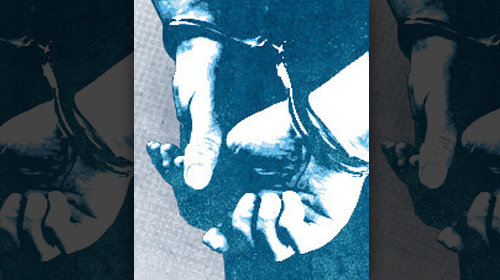
Today, the U.S. has the highest incarceration rate of any country in the world. With over 2.3 million men and women living behind bars, our imprisonment rate is the highest it’s ever been in U.S. history. And yet, our criminal justice system has failed on every count: public safety, fairness and cost-effectiveness. Across the country, the criminal justice reform conversation is heating up. Each week, we feature our some of the most exciting and relevant news in overincarceration discourse that we’ve spotted from the previous week. Check back weekly for our top picks.
LEAD Program Turns Drug Bust into Help, not Jail
For the past year, Seattle has been taking an innovative approach to drug offenses. The city has given its officers the discretion to divert drug addicts and low-level dealers away from the criminal justice system to a program “designed to offer immediate help — a hot meal, a warm coat, a safe place to sleep — as well as longer-term services for drug treatment, stable housing and job training,” according to the Seattle Times. The program is called Law Enforcement Assisted Diversion (LEAD), and 76 people have participated in the year following its inception.
Vera Report: The Anatomy of Discretion: An Analysis of Prosecutorial Decision Making
With over 90 percent of trials resulting in a guilty plea, prosecutors carry more influence over a case than any other actor. Additionally, prosecutors decide what charges to file, what sentence to recommend, and whether to dismiss a case after filing charges. To better understand how prosecutors make decisions, Vera spent two years studying decision-making by prosecutors in two large counties, one northern and one southern. You can read its findings at the link above.
Which Cities Have the Largest Sentencing Disparities?
Marquette Law Professor Michael O’Hear discusses TRAC’s recent report on sentencing disparity among judges within the same courthouse of various federal districts. For example, TRAC found that the most severe judge in the Atlanta federal courthouse issues drug sentences nearly three times longer than does the most lenient judge. You can read Prof. O’Hear’s blog at the link above, and find the full TRAC report here.
Plead Guilty or Go to Prison for Life
The power of prosecutors is magnified by mandatory sentencing laws, which if severe grant some defendants little choice but to plead guilty. Reason’s Jacob Sullum tells the story of Chris Williams, a Montana marijuana grower who operated within state law but outside federal law, which still classifies marijuana as a Schedule I (the most serious) controlled substance. Faced with a series of mandatory sentences adding to over 80 years in federal prison, Mr. Williams pled guilty to accept a five-year sentence instead of exercising his right to a trial.
Two New Documentaries Shed Light on Coerced Confessions, False Convictions
“The Central Park Five” tells the story of five young men who in 1989 were convicted of raping a jogger in New York’s Central Park, despite a lack of any physical evidence linking them to the crime, and despite implausible testimony from the five defendants. After serving 7 to 13 years in prison, their convictions were overturned after DNA evidence linked a serial rapist to the crime. “West of Memphis” tells a similar story; in 1993, three young defendants confessed to a crime that DNA evidence later proved they did not commit. One of them was sentenced to death. After 18 years in prison, they were released in 2011. Both films were recently released; you can watch “The Central Park Five” trailer here, and the “West of Memphis” trailer here. For more about false confessions and the West Memphis Three, read “The Unexonerated.”
Learn more about overincarceration: Sign up for breaking news alerts, follow us on Twitter, and like us on Facebook.
